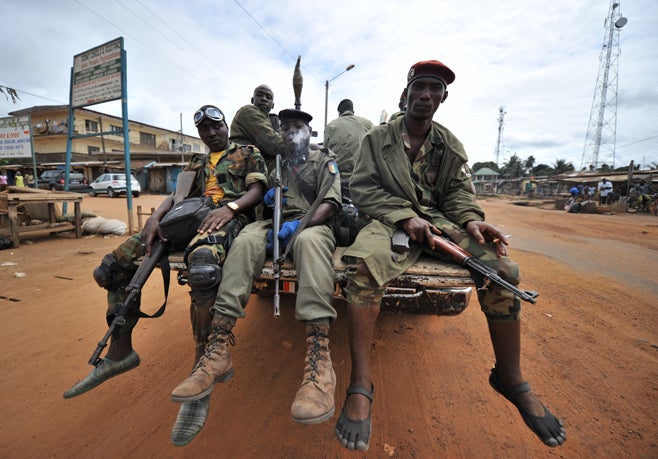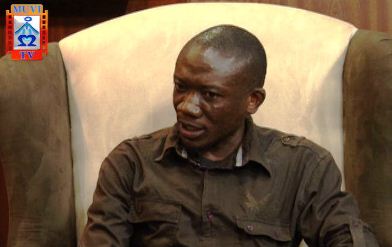By Ryan Aliman
Impunity Watch Reporter, Africa
YAMOUSSOUKRO, Cote d’Ivoire – The military trial against the Republican Forces of Côte d’Ivoire (FRCI) began last Thursday. 33 soldiers have been charged with committing crimes against the population, including premeditated murder, voluntary and involuntary homicide, and theft.

All 33 soldiers are accused of abusing civilians during the post-election crisis from November 2010 to May 2011. In the span of six months, at least 3,000 people were reportedly killed. Some of the deaths were allegedly linked to former President Laurent Gbagbo’s refusal to concede despite international recognition of the results that proclaimed his opponent, Alassane Ouattara, the victor.
After the crisis, a national commission of inquiry created by President Ouattara, in cooperation with international and local human rights groups and a United Nations-mandated international commission of inquiry, have documented war crimes and crimes against humanity by both pro-Gbagbo forces and the FRCI during the crisis.
According to the military prosecutor’s office, the first trial on Thursday involved cases related to events that happened December last year in the central town of Vavoua. Reports say that a number of FRCI soldiers who are currently under trial opened fire on protesters, killing at least five people.
However, both international and local human rights groups are not too impressed with the trial.
“The opening of trials against soldiers from the Republican Forces is an important step forward in Côte d’Ivoire’s fight against impunity,” said Matt Wells, West Africa researcher at Human Rights Watch (HRW). “But Ivorian authorities need to also pursue the more sensitive cases involving the Republican Forces for which victims have seen no justice, particularly the grave crimes committed during the post-election crisis.”
Civil society organizations interviewed by HRW are worried that “ongoing impunity for one side of the conflict – the government forces – risks sowing the seeds for future violence.” According to them, this is because of the sensitive nature of the cases of abuse during the post-election period — cases that not only involve large scale atrocities, but also deal with serious political, ethnic, and religious issues.
“Prosecuting people for serious international crimes can be difficult, but the lack of justice can carry high costs,” Wells added. “Chronic impunity has appeared to feed the repeated episodes of violence in Côte d’Ivoire over the last decade, with civilians paying the greatest price.”
HRW urged Ivorian authorities to strengthen support for prosecuting those implicated in the war crimes and crimes against humanity during the post-election crisis. The human rights group also demanded the government to “investigate and prosecute any soldiers involved in the July 2012 attack on the Nahibly displaced persons camp, and in the cruel and inhuman treatment of detainees in August and September.”
For further information, please see:
Amnesty International – Annual Report 2012 – 11 April 2013
Human Rights Watch – Côte d’Ivoire: Soldiers on Trial for Abuses – 11 April 2013
istockAnalyst – HRW: Ivorian justice lacks balance – 11 April 2013
Tamil Guardian – Trial of soldiers accused of abuse begins in Côte d’Ivoire – 11 April 2013
Yahoo News – Report: Uneven justice could hurt stability in Ivory Coast – 5 April 2013



